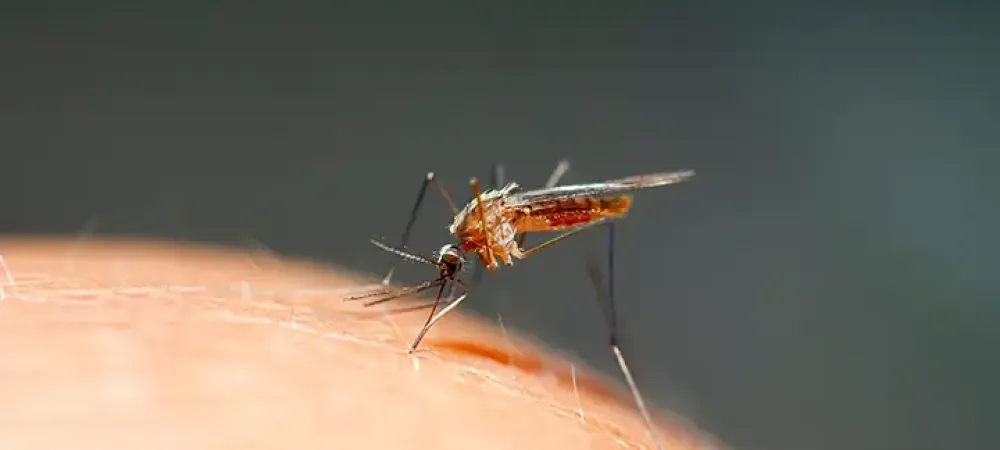How Does Mosquito Fogging Work?

As summer approaches in Nebraska, so do the swarms of pesky mosquitoes. These tiny nuisances can ruin outdoor gatherings, making it essential for homeowners to understand effective control methods. One of the most popular solutions is mosquito fogging. Let’s explore how this process works, why it's effective, and what homeowners in Nebraska need to know.
What is Mosquito Fogging?
Mosquito fogging is a method of pest control that involves using specialized equipment to create a fog of insecticide that is dispersed over a wide area. This process targets adult mosquitoes, significantly reducing their populations and minimizing the risk of bites. Fogging can be particularly effective in areas with high mosquito activity, such as around standing water, gardens, and wooded areas—common sights in the beautiful landscapes of Nebraska.
How Does Fogging Work?
There are four main steps to using fogging to get rid of mosquitoes:
1. Preparation
Before fogging, it’s essential to assess the area for potential breeding sites. Mosquitoes thrive in standing water, so check for areas like bird baths, clogged gutters, or decorative ponds. Clearing these spots can enhance the effectiveness of fogging.
2. Equipment and Chemicals
The fogging process uses either thermal foggers or cold foggers. Thermal foggers heat the insecticide to create a thick fog that can travel long distances, while cold foggers atomize the solution into tiny droplets for a finer mist. In Nebraska, pest control companies typically use EPA-approved insecticides that are effective yet safe for the environment when applied correctly.
3. Application
The fogging technician will start at the perimeter of your yard and move inward, ensuring an even distribution of the insecticide. They will focus on shaded areas, vegetation, and places where mosquitoes are likely to rest, such as under decks or in tall grass. The fog typically dissipates quickly, making it a minimally disruptive solution.
4. Post-Fogging Care
After fogging, it's recommended to avoid the treated area for a short period to allow the insecticide to settle. This is crucial for ensuring the safety of pets and family members. Additionally, homeowners should continue to monitor their yards for mosquito breeding sites and consider follow-up treatments if needed.
Why Choose Mosquito Fogging in Nebraska?
Nebraska's diverse landscapes, from the wetlands of the Platte River to the lush gardens of Omaha, provide perfect breeding grounds for mosquitoes. Fogging can help manage these populations effectively, especially during the peak mosquito season from late spring to early fall.
10 Benefits of Mosquito Fogging:
Mosquito fogging offers several benefits for homeowners and communities, especially in areas prone to high mosquito populations. Here are some key advantages:
- Immediate Results: Fogging can significantly reduce mosquito populations almost immediately after application, often within hours. This makes it an ideal solution for special events or gatherings where mosquitoes are a concern.
- Wide Coverage: The fog can penetrate dense foliage, shrubs, and other hard-to-reach areas where mosquitoes like to rest. This ensures comprehensive coverage and a more effective treatment compared to traditional sprays.
- Long-lasting Protection: While the immediate impact is quick, many fogging treatments offer residual effects that continue to kill mosquitoes for several days to weeks after application, depending on the product used.
- Targeted Approach: Fogging is particularly effective against adult mosquitoes, helping to reduce their numbers quickly and efficiently. This is crucial in breaking the mosquito lifecycle and preventing future populations.
- Safety for Humans and Pets: Most fogging treatments use insecticides that are registered with the Environmental Protection Agency (EPA) and are considered safe for humans and pets when applied by trained professionals. Proper timing and application further minimize risks.
- Reduced Need for Chemical Treatments: By effectively lowering mosquito populations, fogging can help decrease the overall need for ongoing chemical treatments, promoting a healthier environment.
- Cost-Effective: Compared to other pest control methods, fogging can be a cost-effective option, especially for larger properties or areas with severe mosquito problems.
- Prevention of Disease Transmission: By controlling mosquito populations, fogging helps reduce the risk of mosquito-borne diseases such as West Nile virus, Zika virus, and Eastern equine encephalitis. This is particularly important in areas with a history of such diseases.
- Quick Application: Fogging treatments are typically quick to apply, allowing homeowners to enjoy their outdoor spaces without a lengthy treatment process.
- Enhances Enjoyment of Outdoor Spaces: With effective mosquito control, homeowners can comfortably enjoy backyard barbecues, parties, and other outdoor activities without the nuisance of mosquito bites.
Considerations
Mosquito fogging is a highly effective method for reducing mosquito populations in Nebraska, allowing homeowners to enjoy their outdoor spaces without the annoyance of bites. By understanding how the process works and the local factors involved, you can make informed decisions to protect your family and home.
When selecting a mosquito fogging service in Nebraska, it’s essential to choose a company with local expertise. They should be familiar with Nebraska's unique climate and mosquito species, ensuring they use the most effective methods for your area. For the best local mosquito control, contact our team of experienced exterminators at Midwest Pest Control.
